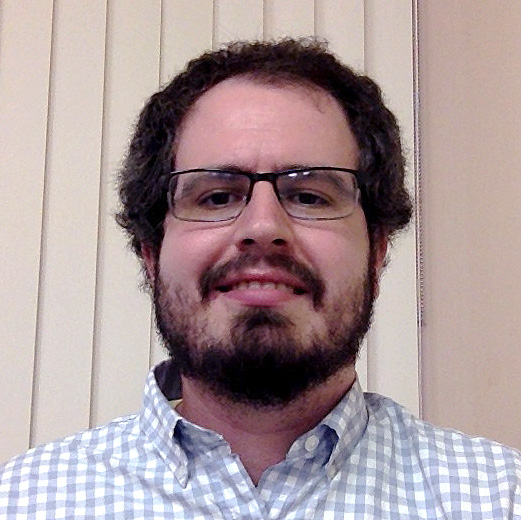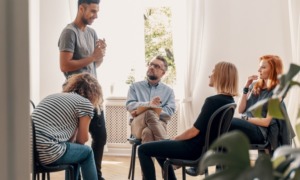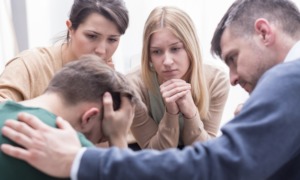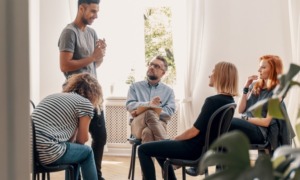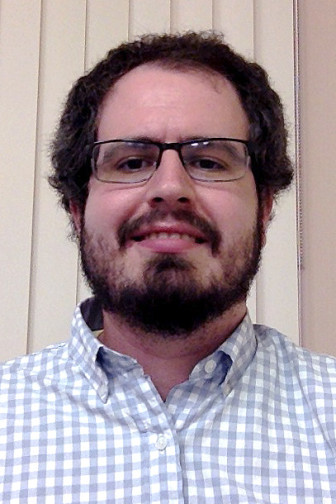 One of the main reasons I ended up addicted to drugs and alcohol was anxiety. Now make no mistake, I suffer from the disease of addiction and would have ended up addicted one way or another. Anxiety helped spark the fuse in a big way, though.
One of the main reasons I ended up addicted to drugs and alcohol was anxiety. Now make no mistake, I suffer from the disease of addiction and would have ended up addicted one way or another. Anxiety helped spark the fuse in a big way, though.
At 18 years old, I was diagnosed with the anxiety disorder numbered 300 in the DSM (Diagnostic Statistical Manual). This stands for Anxiety NOS (not otherwise specified). Although diagnosed as an older adolescent, I’d struggled as far back as elementary school.
My anxiety most often took a distinctly social form, though I was certainly a worrier and preoccupied with things going wrong. I’ve been fortunate enough to never experience a panic attack. Gratitude isn’t a large enough word for my relief regarding this fact.
It’s important to stop here and point out that everything I’ve said, and everything I’ll go on to say, is simply my personal experience and thoughts. I’m not a doctor, nurse or any kind of medical professional. I can’t offer answers about the why of anxiety or addiction — I can only tell you what they felt like for me.
Self-medicating an undiagnosed anxiety disorder
I didn’t have a name for my anxiety for a long time. I just figured I thought too much and too hard about, well, about everything. I figured everyone thought they were the center of attention and worried about that fact. I figured groups of three or more made everyone uncomfortable and that was that.
Then, at 12 years old, I discovered marijuana. It wasn’t love at first puff, but it did make me feel different. In fact, it slowed my thoughts down a bit and left me less fearful of other people and their opinions of me.
While I wasn’t addicted immediately in either the clinical or 12-step sense, I certainly began to use pot harmfully from the start. Not long after that, I discovered alcohol, Ambien and codeine.
These drugs, all depressants of one form or another, worked even better than pot at temporarily removing my anxiety. I used them as frequently as I could and I was able to excel at life. Obviously that’s only a half-truth, but I was doing wonderfully in school and all signs pointed to my anxiety being gone.
Things progressed quickly and within a couple of years I was using stronger opioids — hydrocodone, oxycodone, morphine, etc. — and benzodiazepines, like Xanax and Klonopin, on a daily basis.
I thought I’d discovered the secret to life. I wasn’t anxious at all while these chemicals were in my blood and brain. I wasn’t worried about anything. I could accomplish superhuman feats, like giving a presentation in front of my entire school.
Then something horrible happened: The diminishing returns set in.
When the drugs stop working
Not only was it harder and harder for me to dampen any anxiety with substances, but I was soon introduced to an entirely new type of fear. I like to call this the “you’re in serious trouble” kind of anxiety.
I began to get major consequences from my substance abuse, which, at this point, had progressed to full-blown addiction.
Some of these consequences were legal (crashed cars and arrests), and some were medical (tolerance, physical dependence and overdose). Some were emotional (rebound anxiety), and some were spiritual (a complete lack of connection to anything or anyone).
Regardless of the specific variety of consequence, they all made my anxiety worse. At this point, I couldn’t even find the relief I’d become accustomed to from drugs and alcohol because I’d end up doing something that would produce even more anxiety.
It was a vicious cycle of diminishing returns and dashed hopes. I’d use in an attempt to calm down and end up more worried than ever. I’d use in an attempt to feel better and end up feeling worse.
Anyone acquainted with addiction knows what I’m talking about.
A healthy way to deal with anxiety
Then, at 18, something amazing happened. I entered an inpatient treatment center and they told me I wasn’t crazy or hopeless — I was just addicted! They also diagnosed me with the anxiety disorder mentioned above.
The clinicians there recommended I start taking anti-depressants, as well as start a physical practice of yoga and exercise, and implement spiritual principles through the 12 steps.
I didn’t take any of those suggestions and struggled with active addiction and anxiety for the next year.
I eventually did follow their advice and found a healthy way to manage my anxiety. That isn’t to say everything’s all better — I still struggle with anxiety and will for the rest of my life. It’s part of living with mental illness.
The difference is that today I know how to deal with it. I know how to handle it constructively and with dignity. While I’d love to take credit for this, I owe pretty much everything I learned about anxiety to therapists, doctors and men in recovery.
They showed me a better way. I hope I’ve done the same by relating my experience here.
David Greenspan is a writer, coordinator and media specialist at the Pennsylvania treatment center Malvern Institute. He’s been in recovery since 2008 and finds no greater joy than helping people still struggling with addiction.


